The Role of Privacy Coins in Financial Freedom
In today's rapidly evolving digital landscape, the concept of financial freedom is more relevant than ever. As we navigate through a world where our every transaction can be tracked, the emergence of privacy coins has sparked a revolution in how we think about money, security, and autonomy. But what exactly are privacy coins, and why are they so significant in the quest for financial freedom?
At their core, privacy coins represent a new frontier in the realm of cryptocurrency. Unlike traditional digital currencies like Bitcoin, which, despite their decentralized nature, still leave a trail of transaction data on the blockchain, privacy coins are designed to enhance user anonymity. They utilize advanced cryptographic techniques to obscure transaction details, making it nearly impossible to trace the flow of funds back to individual users. This level of privacy can empower individuals to transact without fear of surveillance, thereby reclaiming a sense of control over their financial lives.
Imagine walking into a store and being able to purchase what you want without anyone knowing your identity or the items you bought. This is the essence of financial privacy that privacy coins aim to provide. In an age where personal data is often exploited for profit, the ability to maintain confidentiality in financial dealings is not just a luxury; it's a fundamental right. However, the importance of privacy extends beyond mere convenience—it plays a crucial role in safeguarding personal security.
Consider the implications of a world where every financial transaction is public. Not only does it expose individuals to potential theft and fraud, but it also opens the door to discrimination based on spending habits, income levels, or even political affiliations. Privacy coins serve as a shield against such vulnerabilities, allowing users to navigate their financial journeys with confidence.
As we delve deeper into this topic, we will explore the various dimensions of privacy coins, from their unique features and popular examples to the regulatory challenges they face. By understanding the role of privacy coins in enhancing financial freedom, we can better appreciate their impact on our economy and society.
- What are privacy coins? Privacy coins are cryptocurrencies that provide enhanced anonymity for users, making it difficult to trace transactions back to individuals.
- Why is financial privacy important? Financial privacy protects personal information and prevents potential discrimination, fraud, and theft.
- What are some popular privacy coins? Some well-known privacy coins include Monero, Zcash, and Dash, each with unique technologies and use cases.
- What regulatory challenges do privacy coins face? Privacy coins often encounter scrutiny from governments and regulatory bodies concerned about their potential use in illegal activities.
- What are the risks associated with privacy coins? While they offer benefits, privacy coins can also be associated with illegal activities and present challenges in maintaining security.
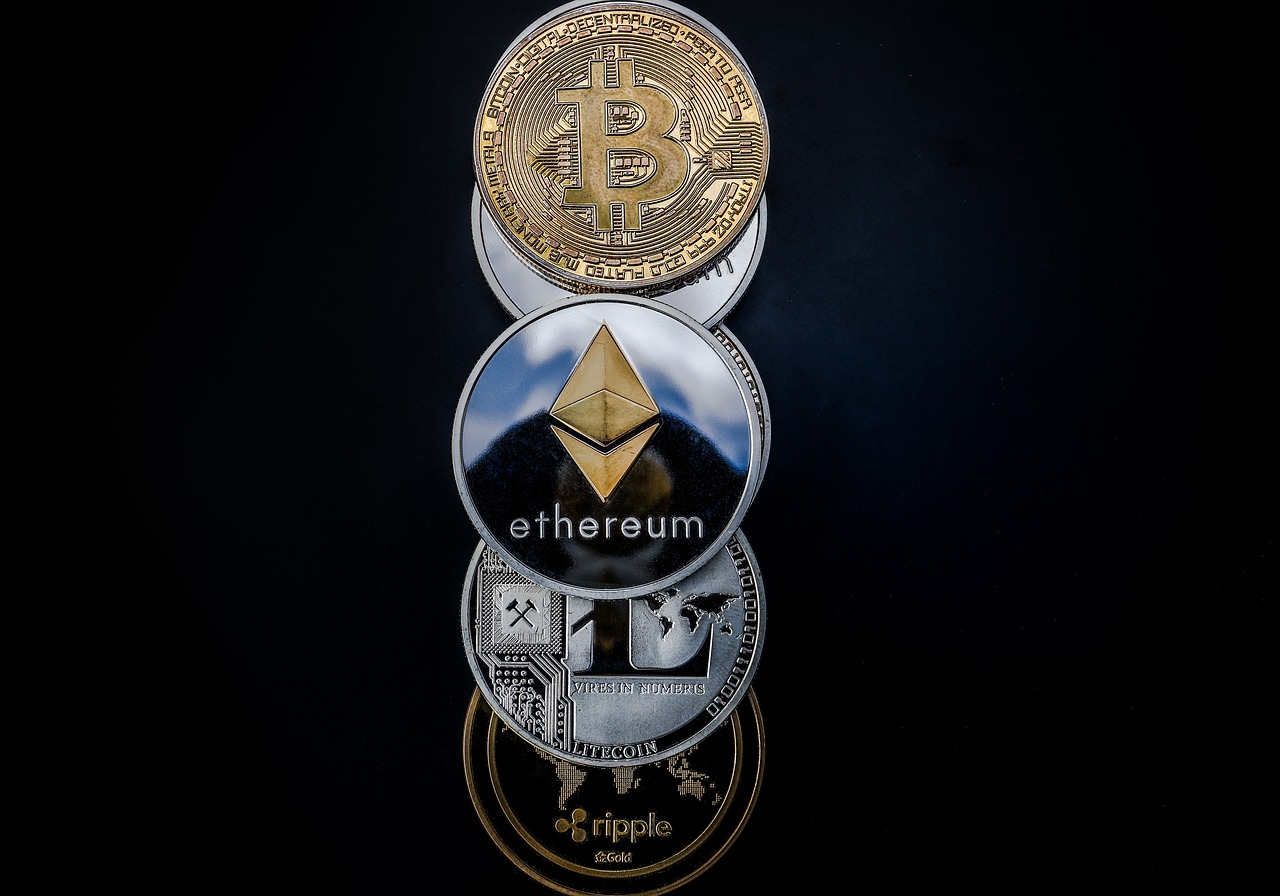
Understanding Privacy Coins
Privacy coins are a fascinating subset of cryptocurrencies that prioritize user anonymity and transaction confidentiality. Unlike traditional cryptocurrencies such as Bitcoin, which operate on a transparent ledger where every transaction is visible to the public, privacy coins employ advanced cryptographic techniques to obscure transaction details. This means that while the transaction itself is recorded on the blockchain, the identities of the senders and receivers, as well as the amounts transferred, remain hidden. This feature is particularly appealing in today's digital age, where data breaches and privacy concerns are rampant.
One of the key technologies that privacy coins utilize is called ring signatures. This method allows a group of potential signers to create a signature that does not reveal which member of the group actually signed the transaction. This technique is prominently used by Monero, one of the leading privacy coins. Furthermore, privacy coins often incorporate stealth addresses, which generate one-time addresses for each transaction, ensuring that the recipient's address cannot be linked to their identity. These features collectively create a robust shield of anonymity for users, making it exceedingly difficult for third parties to trace transactions.
Another notable aspect of privacy coins is their ability to facilitate fungibility. Fungibility refers to the property of an asset where individual units are interchangeable and indistinguishable from one another. In the case of privacy coins, every coin holds the same value and cannot be tainted by associations with illicit activities, unlike Bitcoin, where coins can be traced back to criminal transactions. This characteristic enhances the overall utility of privacy coins, as users can transact without the fear of their coins being blacklisted or devalued due to their transaction history.
However, it's essential to understand that the enhanced privacy offered by these coins comes with its own set of challenges. For instance, the very features that make privacy coins appealing can also attract negative attention from regulatory bodies and law enforcement agencies. As governments worldwide grapple with the implications of cryptocurrencies, privacy coins often find themselves at the center of debates about financial regulation, money laundering, and tax evasion. This regulatory scrutiny can impact their adoption and usage, leading to a complex relationship between privacy and compliance.
In summary, privacy coins represent a significant evolution in the cryptocurrency landscape, catering to users who value anonymity and security in their financial transactions. By employing sophisticated technologies like ring signatures and stealth addresses, these coins provide a layer of protection that traditional cryptocurrencies lack. However, as the conversation around financial privacy continues to evolve, the future of privacy coins will undoubtedly be shaped by regulatory developments and the ongoing quest for a balance between privacy and compliance.
- What are privacy coins? Privacy coins are cryptocurrencies designed to provide enhanced anonymity and confidentiality for users by obscuring transaction details.
- How do privacy coins differ from traditional cryptocurrencies? Unlike traditional cryptocurrencies like Bitcoin, privacy coins use advanced cryptographic techniques to hide transaction information, including sender and receiver identities.
- What technologies do privacy coins use? Privacy coins often utilize technologies such as ring signatures and stealth addresses to enhance user anonymity and security.
- Are privacy coins legal? The legality of privacy coins varies by jurisdiction, and they face significant regulatory scrutiny in many countries due to concerns about their potential use in illegal activities.
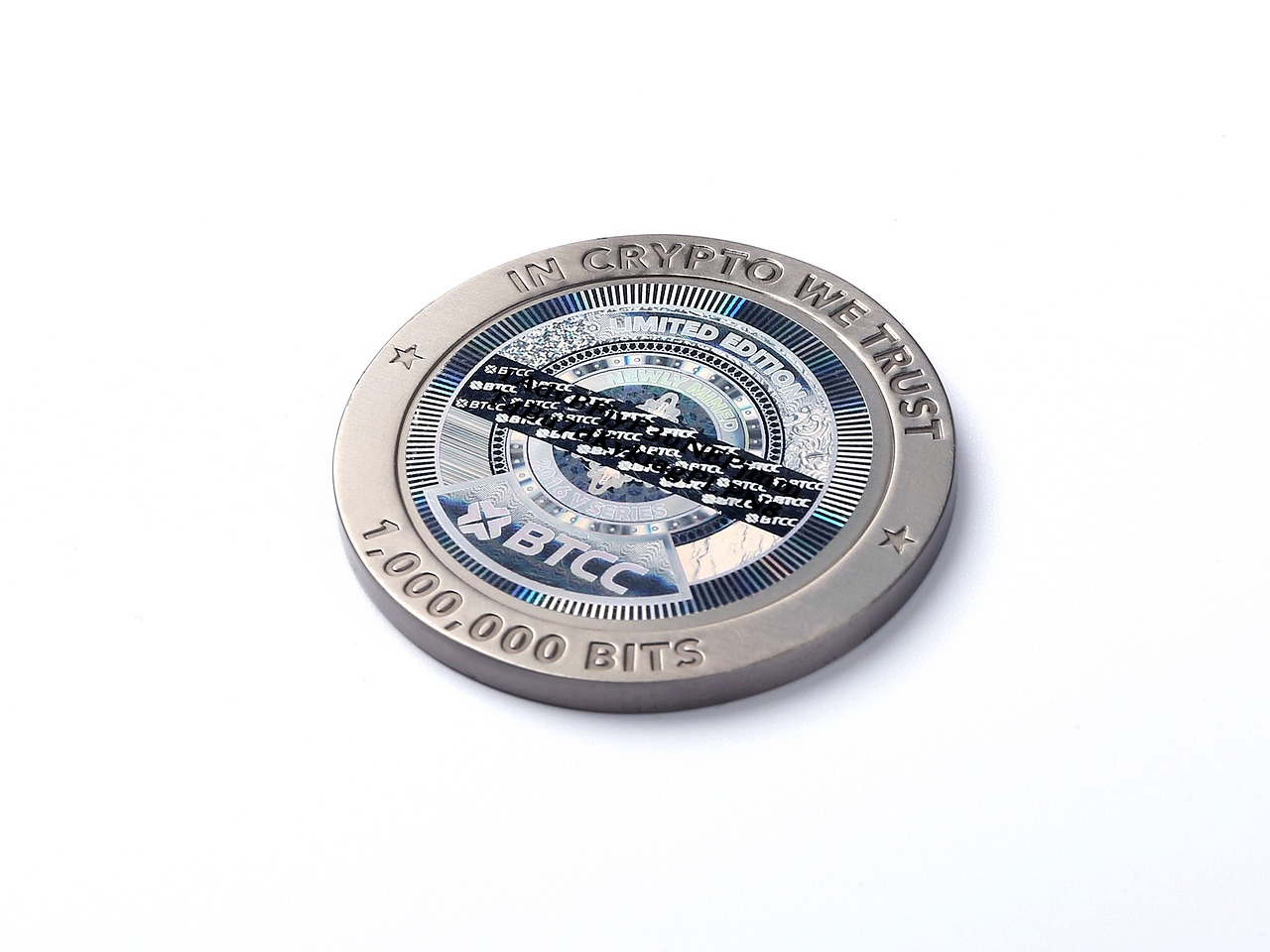
The Importance of Financial Privacy
In today's hyper-connected world, where every click and transaction can be traced, the concept of financial privacy has become more important than ever. Imagine walking through a crowded market, every purchase you make being broadcasted to the public. Sounds uncomfortable, right? That's precisely what happens in the digital realm without proper privacy measures in place. Financial privacy empowers individuals, allowing them to control who sees their financial activities and how much information they choose to share.
Maintaining financial privacy isn't just about keeping secrets; it's about safeguarding your personal security. When your financial information is exposed, it opens the door to identity theft and fraud. Consider this: if someone knows your bank details, they could potentially drain your account or rack up debts in your name. This is why protecting your financial data is crucial. It’s akin to having a safe at home—keeping your valuables secure from prying eyes.
Furthermore, financial privacy plays a vital role in fostering freedom of choice. Individuals should have the right to make purchases without being judged or monitored. Whether it’s buying a book on a controversial topic or donating to a cause that resonates with you, the freedom to transact privately is a cornerstone of personal liberty. In this sense, financial privacy isn’t just a luxury; it’s a fundamental right that supports the values of a free society.
However, it’s essential to recognize that financial privacy is a double-edged sword. While it offers protection, it can also be misused. Criminals may exploit privacy coins and other private financial tools to conduct illicit activities. This creates a complex landscape where the need for privacy must be balanced against the potential for abuse. To illustrate this, consider the following:
| Pros of Financial Privacy | Cons of Financial Privacy |
|---|---|
| Protects personal information | Can facilitate illegal activities |
| Empowers individual choice | May hinder law enforcement efforts |
| Enhances personal security | Potential for misuse by bad actors |
As we navigate this intricate web of financial privacy, it’s crucial for individuals to be informed about their rights and the tools available to them. Embracing privacy coins and other privacy-enhancing technologies can help maintain a level of anonymity in transactions, ensuring that personal financial data remains just that—personal.
In summary, the importance of financial privacy cannot be overstated. It is a vital component of personal security, freedom of choice, and a fundamental right in our increasingly digital world. As we continue to evolve in the realm of finance, understanding and advocating for financial privacy will be essential in protecting our rights and freedoms.
- What are privacy coins? Privacy coins are cryptocurrencies designed to enhance user anonymity and protect transaction details.
- Why is financial privacy important? It protects individuals from identity theft, fraud, and allows for freedom of choice in financial transactions.
- Are privacy coins illegal? No, privacy coins are legal, but they face regulatory scrutiny due to potential misuse.
- How can I maintain financial privacy? Utilize privacy coins, secure wallets, and be cautious about sharing personal information online.
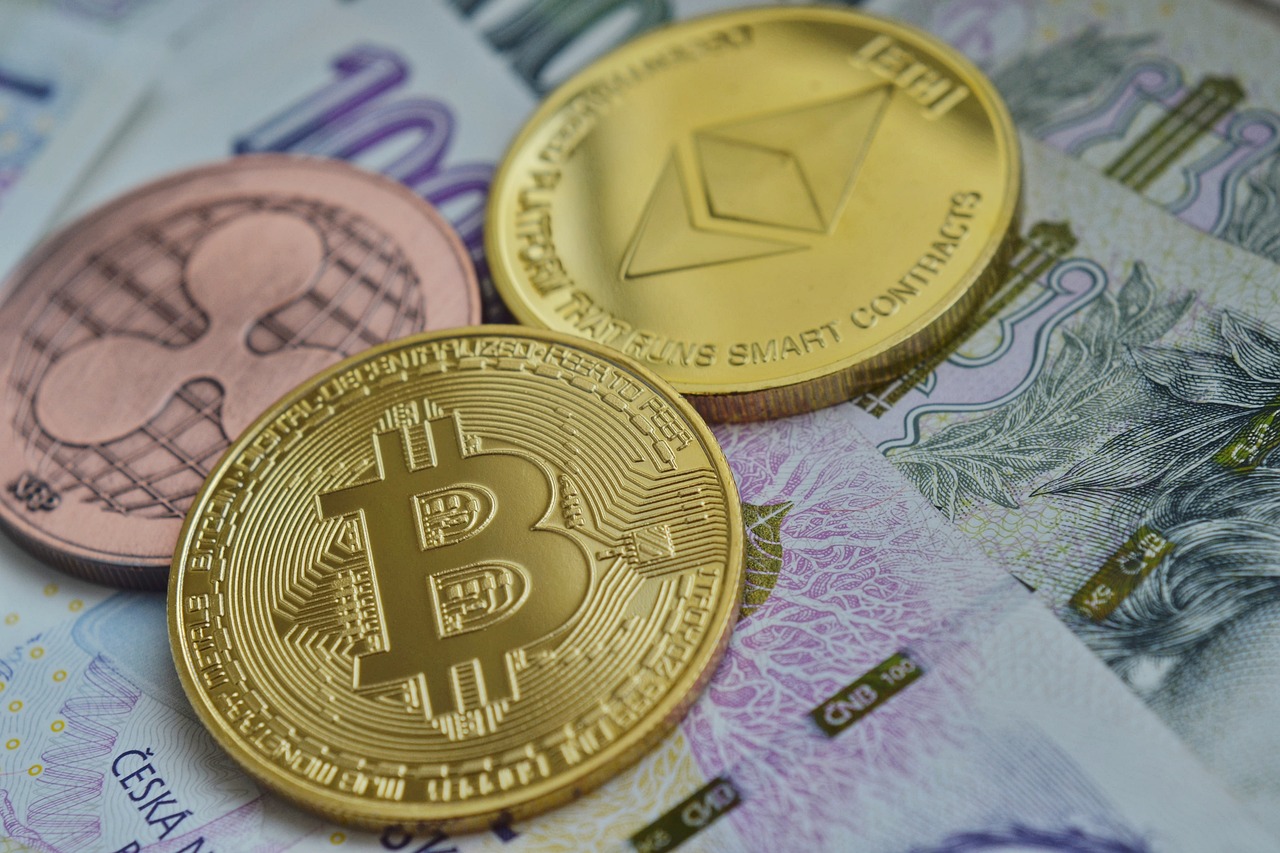
Popular Privacy Coins
When it comes to privacy coins, there are a few heavy hitters that stand out in the crowded cryptocurrency market. These coins are not just about hiding transactions; they are about creating a new paradigm for financial freedom. Let’s explore some of the most well-known privacy coins, their unique features, and what makes them essential in the quest for anonymity.
Monero is often regarded as the king of privacy coins. Unlike Bitcoin, which has a transparent ledger, Monero employs advanced cryptographic techniques to obscure the sender, recipient, and amount of every transaction. This means that Monero transactions are confidential and untraceable, providing users with a high level of privacy. The technology behind Monero includes Ring Signatures, Stealth Addresses, and Bulletproofs, which work together to ensure that transaction details remain hidden from prying eyes.
Another notable player in the privacy coin arena is Zcash. It offers users the option of "shielded" transactions, which utilize a technology called zk-SNARKs (zero-knowledge succinct non-interactive arguments of knowledge). This allows users to prove that a transaction is valid without revealing the sender, receiver, or transaction amount. Zcash provides a balance between transparency and privacy, allowing users to choose how much information they want to disclose. This flexibility is appealing to many who wish to navigate the crypto space while maintaining some level of anonymity.
Dash, originally known as Darkcoin, also has features that enhance user privacy. While not as private as Monero or Zcash, Dash offers a feature called PrivateSend, which mixes coins from multiple users to obscure the transaction trail. This makes it more challenging to trace the origin of funds. Dash's focus on user-friendliness and fast transaction speeds has made it a popular choice among those looking to make everyday purchases while keeping their financial activities discreet.
In addition to these well-known coins, there are other emerging privacy-focused cryptocurrencies, such as Pirate Chain and Verge. Pirate Chain uses a technology similar to Zcash, ensuring that all transactions are private by default, while Verge leverages multiple anonymity-centric networks, providing users with a range of choices for enhancing their privacy.
To summarize, the landscape of privacy coins is diverse and continues to evolve. Each coin brings its own unique approach to privacy, catering to different user needs and preferences. Here's a quick comparison of some popular privacy coins:
| Coin | Privacy Features | Transaction Speed | Market Position |
|---|---|---|---|
| Monero | Ring Signatures, Stealth Addresses | 2 minutes | Top 10 |
| Zcash | zk-SNARKs | 2.5 minutes | Top 30 |
| Dash | PrivateSend | 2.5 minutes | Top 50 |
| Pirate Chain | Private by default | 2 minutes | Emerging |
| Verge | Multiple anonymity networks | 30 seconds | Top 100 |
As we navigate through this digital era, the importance of privacy coins cannot be overstated. They not only provide a shield against unwanted surveillance but also empower users to take control of their financial destinies. With increasing concerns over data privacy and security, the demand for these coins is likely to grow, making them a significant aspect of the cryptocurrency landscape.
- What are privacy coins? Privacy coins are cryptocurrencies that focus on providing enhanced anonymity for users, making transactions untraceable and confidential.
- How do privacy coins differ from regular cryptocurrencies? Unlike regular cryptocurrencies like Bitcoin, which have transparent ledgers, privacy coins use advanced cryptographic techniques to obscure transaction details.
- Are privacy coins legal? The legality of privacy coins varies by jurisdiction, and they face regulatory scrutiny in many countries due to their potential use in illegal activities.
- Can privacy coins be used for everyday transactions? Yes, many privacy coins are designed for everyday use and can be used for remittances, donations, and purchases while maintaining user privacy.

Regulatory Challenges
The rise of privacy coins has undoubtedly stirred up conversations around financial autonomy and security. However, with great power comes great responsibility, and in the world of cryptocurrencies, this often translates to regulatory challenges. Governments and regulatory bodies across the globe are grappling with how to approach these digital assets that promise anonymity and privacy. The fundamental question arises: how do we protect consumers while ensuring that these coins are not misused for illicit activities?
One of the primary concerns regulators face is the potential for money laundering and terrorist financing. Privacy coins like Monero and Zcash, which offer advanced privacy features, can obscure transaction trails, making it difficult for authorities to trace funds. This lack of transparency raises red flags for regulators who are tasked with maintaining financial integrity and security. For instance, a study by the Financial Action Task Force (FATF) indicated that the anonymity provided by these coins could facilitate illegal transactions, leading to a push for stricter regulations.
Moreover, the regulatory landscape varies significantly by region. In some countries, privacy coins are outright banned, while others are still in the process of developing a regulatory framework. The table below summarizes the regulatory stance on privacy coins in different regions:
| Region | Regulatory Stance |
|---|---|
| United States | Ongoing discussions; some states have imposed restrictions |
| European Union | Proposed regulations to enhance transparency |
| China | Complete ban on privacy coins |
| Japan | Legal, but subject to strict regulations |
These varying approaches create a complex environment for developers and users alike. Many privacy coin projects are forced to adapt their technologies to comply with local regulations, which can dilute their core promise of anonymity. For instance, some coins are now implementing optional transparency features to appease regulators, which raises the question: is it still a privacy coin if it can be made transparent?
Additionally, the fear of regulatory crackdowns has led to increased scrutiny from financial institutions. Some banks are hesitant to engage with clients who transact in privacy coins, fearing repercussions from regulators. This creates a paradox: while privacy coins aim to provide financial freedom, the regulatory environment can inadvertently restrict their use in mainstream finance.
As we move forward, the challenge will be finding a middle ground that allows for the benefits of privacy coins while addressing the legitimate concerns of regulators. The future of these digital assets may depend on their ability to demonstrate that they can be used responsibly without enabling criminal activity. Will privacy coins evolve to meet these challenges, or will they remain on the fringes of the financial system? Only time will tell.
- What are privacy coins? Privacy coins are cryptocurrencies designed to enhance user anonymity and protect transaction details from public scrutiny.
- Why are privacy coins under regulatory scrutiny? Their ability to obscure transaction details raises concerns about potential misuse for illegal activities, prompting regulators to evaluate their impact on financial security.
- Are all countries banning privacy coins? No, regulatory stances vary significantly; some countries have imposed bans, while others are still developing frameworks to regulate their use.
- Can privacy coins be used legally? Yes, privacy coins can be used legally in many jurisdictions, but users must be aware of and comply with local regulations.
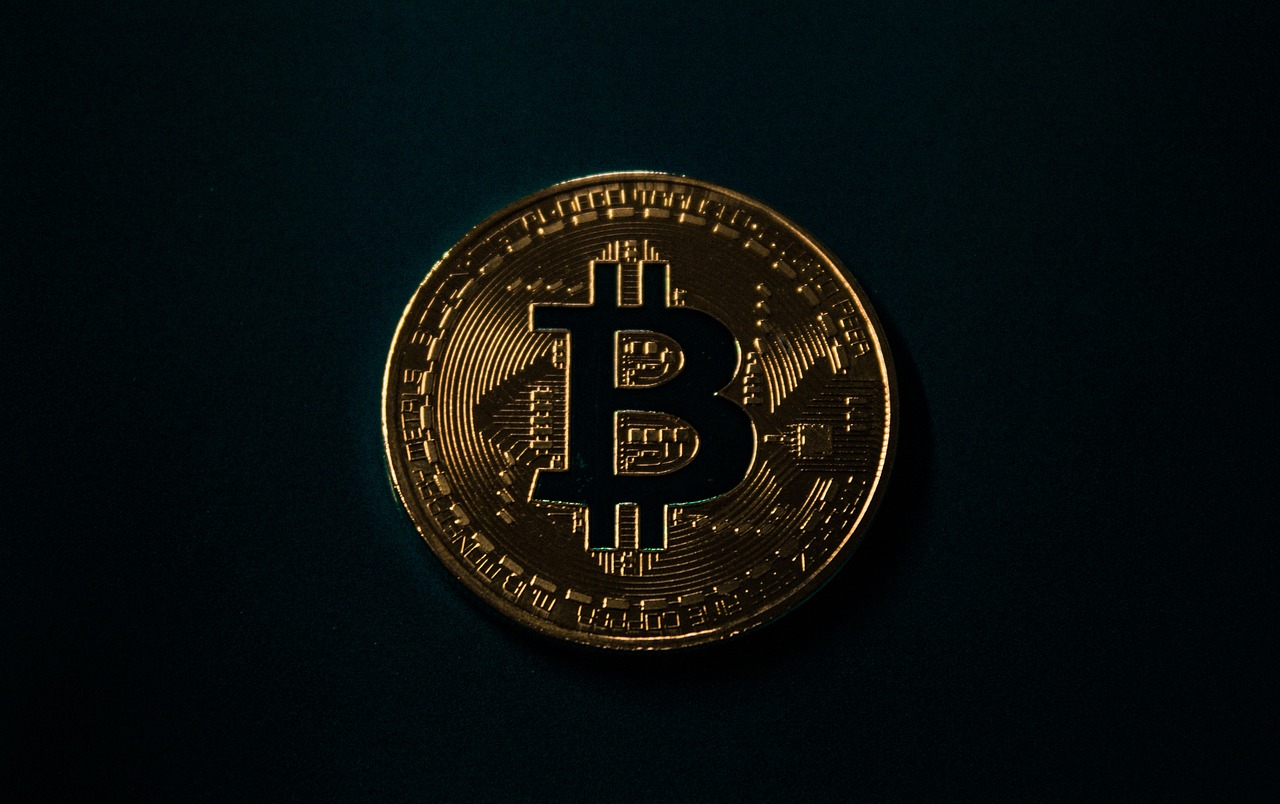
Adoption and Use Cases
In recent years, the adoption of privacy coins has surged, reflecting a growing demand for financial anonymity in a world where data breaches and surveillance are becoming alarmingly common. These digital currencies are not just a passing trend; they are carving out a niche in various sectors, proving their practicality and relevance. But how exactly are people using these coins? Let's dive into some fascinating use cases that highlight their increasing importance.
One of the most compelling applications of privacy coins is in the realm of remittances. Imagine a migrant worker sending money back home to support their family. Traditional remittance services often charge exorbitant fees and take days to process transactions. In contrast, privacy coins can facilitate instant transfers at a fraction of the cost, all while keeping the sender's and receiver's identities secure. This not only saves money but also provides peace of mind, knowing that their financial dealings are shielded from prying eyes.
Another noteworthy use case is in the area of donations. Many individuals and organizations are increasingly concerned about their financial privacy when contributing to causes they believe in. Whether it's supporting a political campaign, a non-profit organization, or a grassroots movement, privacy coins allow donors to contribute without fear of being tracked or targeted. This anonymity can encourage more people to donate, knowing their financial support remains confidential.
Furthermore, everyday transactions are becoming another arena where privacy coins shine. As more merchants begin to accept cryptocurrencies, the opportunity for consumers to use privacy coins for regular purchases is expanding. For instance, a person might choose to buy coffee or groceries using a privacy coin instead of a credit card, preferring to keep their spending habits private. This shift not only empowers consumers but also challenges traditional financial systems that often monitor and track spending patterns.
To give you a clearer picture, here’s a table summarizing some of the key sectors where privacy coins are making an impact:
| Sector | Use Case | Benefits |
|---|---|---|
| Remittances | Sending money across borders | Low fees, fast transactions, anonymity |
| Donations | Contributing to causes | Privacy, security, encouraging more donations |
| Everyday Transactions | Purchasing goods and services | Financial privacy, control over personal data |
As we can see, the use cases for privacy coins are diverse and impactful. They not only enhance the user experience by providing anonymity but also challenge conventional financial systems, pushing for a more decentralized and user-centric approach. In this way, privacy coins are not just a tool for the tech-savvy but are becoming a viable option for anyone seeking to maintain their financial privacy.
In conclusion, the adoption of privacy coins is on the rise, driven by a desire for greater control over personal finances. Their applications in remittances, donations, and everyday transactions illustrate their growing relevance in today's digital economy. As more people become aware of the benefits these coins offer, we can expect to see their usage continue to expand, paving the way for a future where financial privacy is not just a luxury but a standard practice.
- What are privacy coins? Privacy coins are cryptocurrencies designed to provide enhanced anonymity for users, making it difficult to trace transactions back to individuals.
- How do privacy coins differ from traditional cryptocurrencies? Unlike traditional cryptocurrencies like Bitcoin, which have transparent ledgers, privacy coins use advanced cryptographic techniques to obscure transaction details.
- Are privacy coins legal? The legality of privacy coins varies by country, with some jurisdictions imposing strict regulations while others embrace their use.
- Can privacy coins be used for illegal activities? While privacy coins can be misused, they also serve legitimate purposes, and the vast majority of users utilize them for lawful transactions.
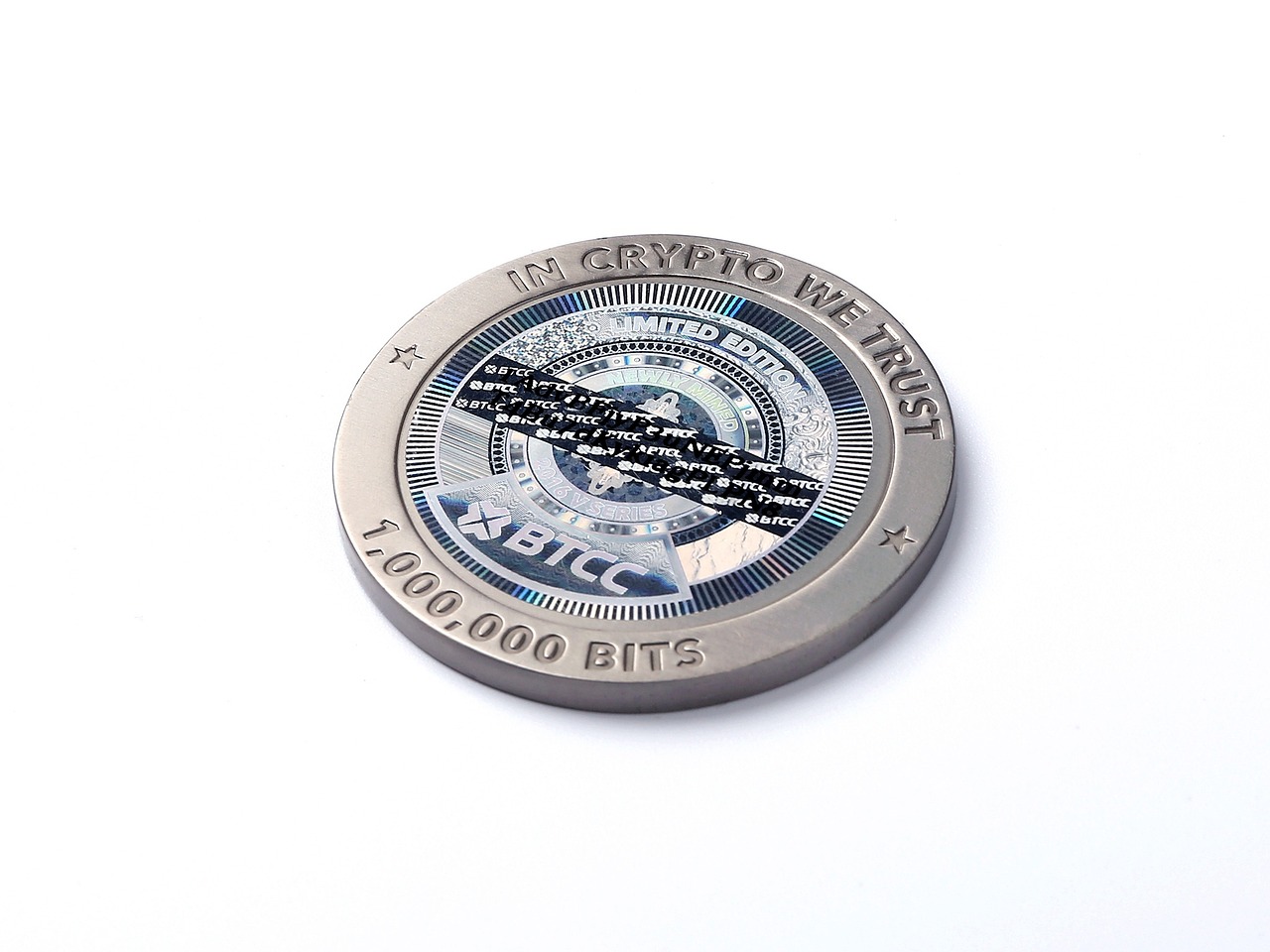
Risks and Concerns
While privacy coins offer a myriad of advantages, they do not come without their . One of the primary issues surrounding these digital currencies is their association with illegal activities. Due to the anonymity they provide, privacy coins can be exploited for money laundering, tax evasion, and other illicit transactions. This creates a perception problem, as governments and regulatory bodies often view these coins with suspicion, which can lead to stringent regulations that may stifle innovation.
Another significant concern is the security vulnerabilities that can arise from using privacy coins. While the technologies behind these currencies, like ring signatures and zero-knowledge proofs, are designed to enhance security, they can also introduce complexities that may lead to unexpected flaws. For instance, if a user is not well-versed in managing their private keys, they could inadvertently expose their holdings to theft or loss. This highlights the importance of proper education and awareness when engaging with privacy coins.
Moreover, the volatility of privacy coins can be a double-edged sword. On one hand, their prices can skyrocket, offering substantial returns for early adopters. On the other hand, they can plummet just as quickly, leaving investors with significant losses. This instability can deter mainstream adoption, as individuals and businesses often seek more predictable financial instruments.
In addition to these financial risks, there is also the concern of user adoption. While privacy coins are gaining traction, they still represent a niche within the broader cryptocurrency market. Many potential users may be hesitant to adopt these technologies due to the stigma associated with them. This hesitance can slow down the growth and acceptance of privacy coins, limiting their potential impact on the financial landscape.
Finally, the regulatory landscape is continuously evolving, and privacy coins are often at the forefront of this evolution. Governments are grappling with how to regulate these currencies without stifling innovation. As regulations become more stringent, the future of privacy coins could be jeopardized. Users must stay informed about the legal implications of using privacy coins in their jurisdictions, as non-compliance can lead to severe penalties.
In summary, while privacy coins present exciting opportunities for enhancing financial freedom, they are not without their challenges. Users must navigate a complex landscape of potential legal issues, security vulnerabilities, and market volatility. Understanding these risks is crucial for anyone looking to delve into the world of privacy coins.
- What are privacy coins? Privacy coins are cryptocurrencies designed to enhance user anonymity and privacy in transactions.
- Are privacy coins illegal? No, privacy coins are not illegal, but they can be associated with illicit activities, leading to regulatory scrutiny.
- How do I ensure the security of my privacy coins? Users should educate themselves on managing private keys, use reputable wallets, and stay updated on security best practices.
- What are some popular privacy coins? Some well-known privacy coins include Monero, Zcash, and Dash.
- How do regulations affect privacy coins? Regulatory changes can impact the usability and acceptance of privacy coins, influencing how users can legally transact with them.
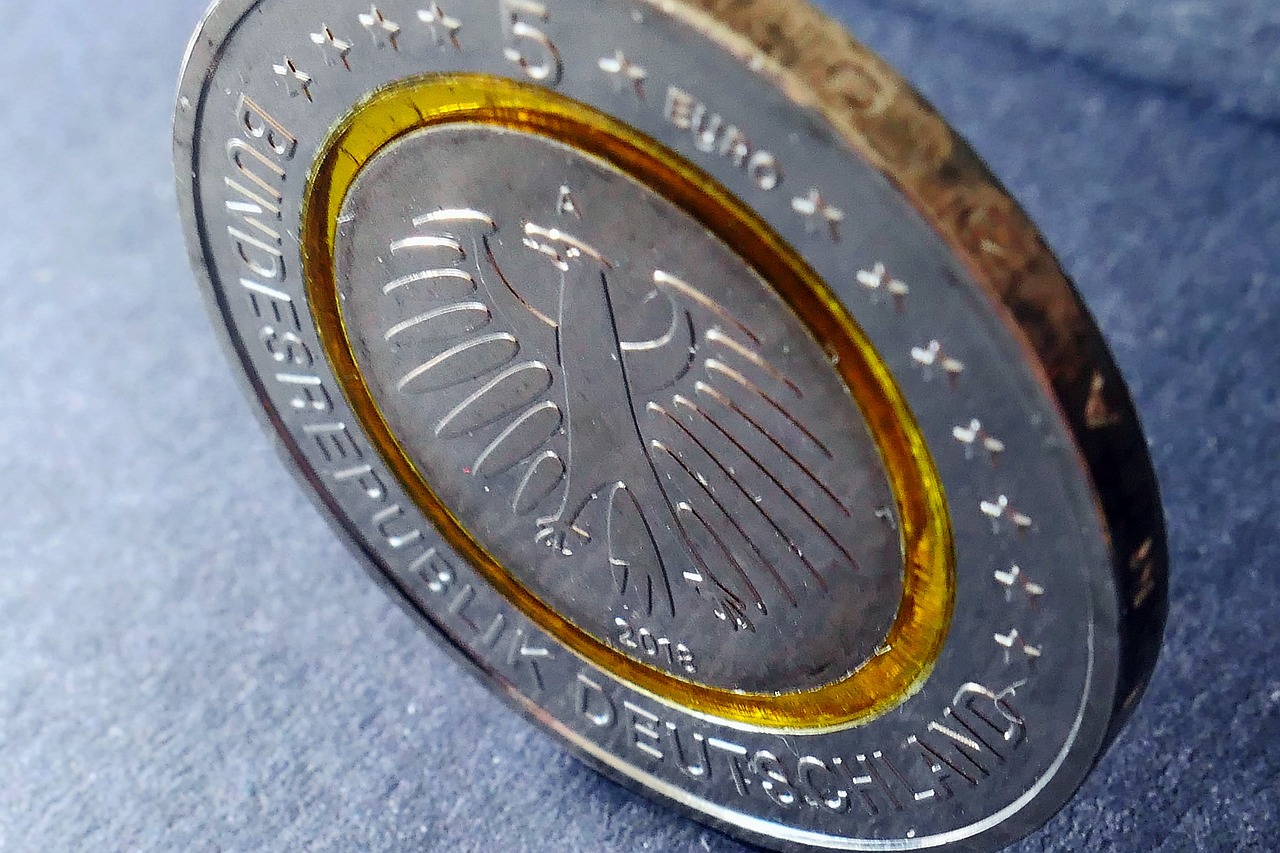
Future of Privacy Coins
The future of privacy coins is a topic that stirs both excitement and apprehension among enthusiasts and regulators alike. As we navigate through the rapidly evolving landscape of digital finance, the significance of privacy coins is becoming increasingly pronounced. These cryptocurrencies, which prioritize user anonymity and transaction confidentiality, are poised to play a crucial role in shaping the future of financial interactions. But what does that really mean?
To understand the trajectory of privacy coins, we need to consider a few key factors that will influence their development and adoption:
- Regulatory Environment: Governments around the world are grappling with how to regulate cryptocurrencies, especially those that offer enhanced privacy features. The balance between protecting consumers and preventing illicit activities is delicate. Future regulations may either bolster the legitimacy of privacy coins or impose restrictions that stifle their growth.
- Technological Advancements: As technology continues to evolve, so too will the mechanisms that underpin privacy coins. Innovations in cryptography and blockchain technology could lead to more sophisticated privacy solutions, making these coins more attractive to users seeking anonymity.
- User Demand: The growing awareness of data privacy issues in our digital lives is driving demand for financial products that prioritize user confidentiality. As individuals become more conscious of their online footprints, privacy coins could see increased adoption.
Moreover, the integration of privacy coins into mainstream financial systems could significantly alter how we perceive money. Imagine a world where you can make transactions without the fear of being surveilled or having your financial habits exposed to corporations or governments. This potential shift could empower individuals, giving them greater control over their finances.
However, the road ahead is not without challenges. The association of privacy coins with illicit activities, such as money laundering and tax evasion, casts a long shadow. This stigma could hinder their acceptance by mainstream financial institutions, which may be wary of engaging with assets that could be perceived as risky. Furthermore, the technological complexity of privacy coins may deter less tech-savvy users from adopting them.
Despite these hurdles, the resilience of the cryptocurrency community is noteworthy. Developers and advocates are continuously working to enhance the usability and security of privacy coins. Collaborations between privacy coin projects and privacy-focused organizations could lead to innovative solutions that address regulatory concerns while preserving the core principles of anonymity.
In conclusion, the future of privacy coins is a fascinating interplay between innovation and regulation. As the demand for financial privacy grows and technology advances, these coins may carve out a significant niche in the digital economy. The question remains: will they be embraced as tools for empowerment, or will they be relegated to the shadows of the financial world? Only time will tell.
1. What are privacy coins?
Privacy coins are cryptocurrencies designed to enhance user anonymity during transactions. They use advanced cryptographic techniques to obscure transaction details, making it difficult to trace the flow of funds.
2. Why are privacy coins important?
Privacy coins are important because they offer individuals greater control over their financial information, protecting them from surveillance and potential misuse of their data.
3. What are some examples of privacy coins?
Some well-known privacy coins include Monero, Zcash, and Dash, each utilizing unique technologies to ensure user privacy.
4. Are privacy coins legal?
The legality of privacy coins varies by jurisdiction. While some countries embrace them, others impose strict regulations or outright bans, often due to concerns over their potential use in illegal activities.
5. What challenges do privacy coins face?
Privacy coins face challenges such as regulatory scrutiny, public perception issues, and technological barriers that may hinder widespread adoption.

Conclusion: Balancing Privacy and Compliance
As we wrap up our exploration of privacy coins and their role in financial freedom, it’s crucial to recognize the delicate balance between privacy and compliance. In a world where digital transactions are becoming the norm, the need for anonymity is more pronounced than ever. Yet, this demand for privacy must coexist with the regulatory frameworks that aim to prevent illicit activities. Think of it like walking a tightrope; one misstep could lead to significant consequences for both users and developers.
The crux of the matter lies in understanding that while privacy coins offer remarkable benefits—such as protecting personal information and enabling financial autonomy—they also come with inherent risks. For instance, the anonymity that these coins provide can sometimes attract individuals with less-than-honorable intentions. This has led to increased scrutiny from regulatory bodies globally, which are concerned about the potential misuse of these technologies. Therefore, it’s essential for users to be aware of the legal landscape surrounding privacy coins in their respective jurisdictions.
Moreover, achieving this balance is not just the responsibility of regulatory authorities; it also falls on the shoulders of the cryptocurrency community. Developers and users alike must advocate for responsible practices that promote transparency without compromising the core values of privacy coins. This includes implementing measures that can help distinguish between legitimate uses of privacy coins and those that may facilitate illegal activities. By fostering a culture of responsibility and education, we can help pave the way for a more secure and compliant future for privacy coins.
In conclusion, the journey of privacy coins is still unfolding. As we continue to navigate the complexities of financial privacy and regulatory compliance, it’s vital to stay informed and engaged. The future of these coins will likely depend on how well the community can adapt to changing regulations while maintaining the fundamental principles that make privacy coins so appealing in the first place. So, as we move forward, let’s keep the conversation going—because the balance between privacy and compliance is not just a regulatory challenge; it's a societal one.
- What are privacy coins? Privacy coins are cryptocurrencies that provide enhanced anonymity and privacy for users, making transactions difficult to trace.
- Why is financial privacy important? Financial privacy protects individuals' personal information and allows for greater control over one's financial data, contributing to personal security and freedom.
- What are some popular privacy coins? Some well-known privacy coins include Monero, Zcash, and Dash, each offering unique features and technologies.
- What regulatory challenges do privacy coins face? Privacy coins often encounter scrutiny from governments and regulatory bodies, which raises concerns about their use in illegal activities.
- How are privacy coins being adopted? Privacy coins are increasingly used in various sectors for remittances, donations, and everyday transactions, demonstrating their growing relevance.
Frequently Asked Questions
- What are privacy coins?
Privacy coins are a type of cryptocurrency designed specifically to enhance user anonymity and protect transaction details. Unlike traditional cryptocurrencies like Bitcoin, which can be traced on public ledgers, privacy coins utilize advanced cryptographic techniques to obscure sender and receiver information, making financial transactions more private.
- Why is financial privacy important?
Maintaining financial privacy is crucial for protecting personal information from potential threats, such as identity theft and unwanted surveillance. In a world where data breaches are common, having the ability to conduct transactions privately allows individuals to retain control over their financial information and safeguard their personal security.
- What are some popular privacy coins?
Some of the most well-known privacy coins include Monero, Zcash, and Dash. Each of these coins employs unique technologies to ensure transaction privacy. For example, Monero uses ring signatures and stealth addresses, while Zcash offers an optional shielded transaction feature that enhances user anonymity.
- What regulatory challenges do privacy coins face?
Privacy coins often encounter significant scrutiny from governments and regulatory bodies due to concerns about their potential use in illegal activities, such as money laundering and tax evasion. This scrutiny can lead to bans or restrictions in certain jurisdictions, posing challenges for developers and users alike.
- How are privacy coins being adopted in various sectors?
Privacy coins are increasingly being adopted across different sectors for various use cases, including remittances, donations, and everyday transactions. Their ability to provide anonymity makes them appealing for users who prioritize privacy, especially in regions with unstable financial systems.
- What are the risks associated with using privacy coins?
While privacy coins offer numerous benefits, they also come with risks, such as their association with illegal activities and the potential for security breaches. Users must exercise caution and conduct thorough research before engaging with these cryptocurrencies to ensure they understand the implications of their use.
- What does the future hold for privacy coins?
The future of privacy coins is uncertain, as they navigate a landscape of evolving regulations and market dynamics. However, as awareness of financial privacy grows, there may be increasing demand for these coins, leading to potential innovations and developments in the space.
- How can users balance privacy and compliance when using privacy coins?
To achieve a balance between privacy and compliance, users should stay informed about local regulations and ensure they are using privacy coins responsibly. Engaging with reputable exchanges and services that prioritize compliance can also help users navigate the complexities of using privacy-focused cryptocurrencies.



















